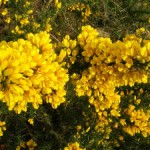Archive for October, 2001

When the neighbour’s gorse jumps the fence
If you’re in Southland and your neighbours gorse and broom is starting to cause you problems then it’s time you called Environment Southland.

A couple of accounting tips
By Trudi BairdIf you are a self-employed farmer and not covered by ACC CoverPlus Extra you might want to consider it. This is the message from farm accountant leader David Russell, of New Plymouth, who has been making this recommendation to his own clients and to farm accountants throughout the country. But whether farmers […]

Anthrax and the 3 S’s
By Will VerbovenAnthrax is one of those hot words that strikes instant fear into many citizens. That fear seems to have come to the attention of real and wannabe terrorists and the usual collection of copycat nut cases – particularly after September 11th. Those warped individuals have been mailing Anthrax spores to various people […]

Sheepish
By Jim Webster There is a limit to what sheep farmers should be allowed to suffer. Whatever it is … they have just been pushed over that limit by actions of almost blinding stupidity on the part of the British government. Scientists at the government-funded Institute for Animal Health in Edinburgh were paid 217,000 pound […]

Little lepto risk in south
By Trudi Baird 13 October 2001 — Leptospirosis is a serious disease and a real threat to both animals and humans. But, due to heightened media attention, farmers could be forgiven for thinking it is only a matter of time before their farm becomes infected with the disease. In reality, the disease is associated more […]

Rrrrrotavirus
By Barbara Smail Remember my recent article that began “Keep your calves out of the poo!”? Well guess who was in it, to the top of her overalls this spring. Our calves should have had a great start – clean, fresh sawdust with draught free sunny sheds, freshwater, meal and hayfeeders all installed – and […]

Footrot not just a merino problem
By Trudi Baird Presently, footrot is thought to cost the merino industry in excess of $3m but is estimated to cost the sheep industry as a whole (in this country) between $80m and $100m. And unless progress is made in dealing with the problem, Footrot which was originally considered predominately a merino disease, is set […]

Getting rid of that ticking
By Joanne Marshall A bad rural internet connection is like a deadly disease – you hope you don’t get it and that if you do that there’ll be a cure for it. Unfortunately for rural people with a bad connection the only thing on offer is a small non-waterproof sticky plaster. This half-pie solution is […]

US loss is NZ’s gain
By Will Verboven The American Sheep Industry Association (ASI) is trying to rally the troops to fight a giant American grocery store chain over their decision to stock only New Zealand lamb. The Safeway chain has over 1,200 stores in the USA and over 200 in Canada. In addition they own several other smaller chain […]

Worm eating fungi could benefit farmers
By Joanne Marshall Early in July Farmnews reported that some Australian and British researchers had made a breakthrough in the war against worm parasites in sheep. At that time the researchers had found that a nematophagous fungi could be used to control the free-living stages of some worm parasites of sheep under grazing conditions. Since […]